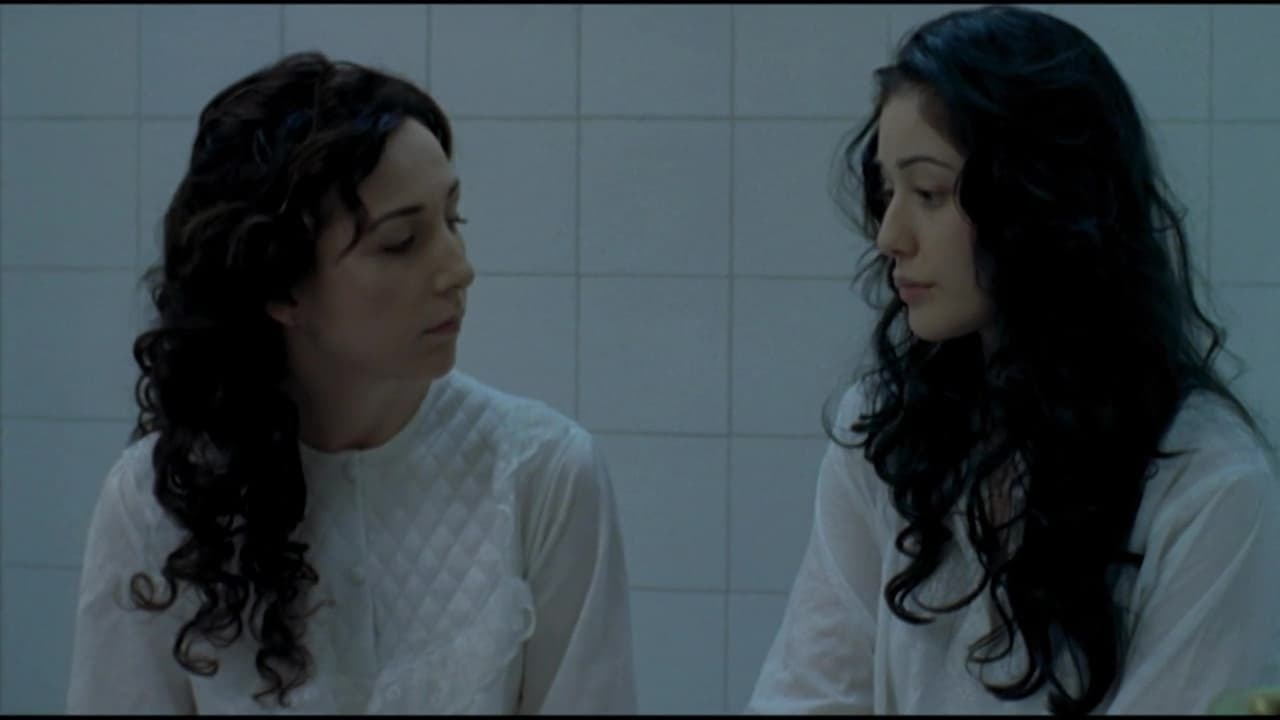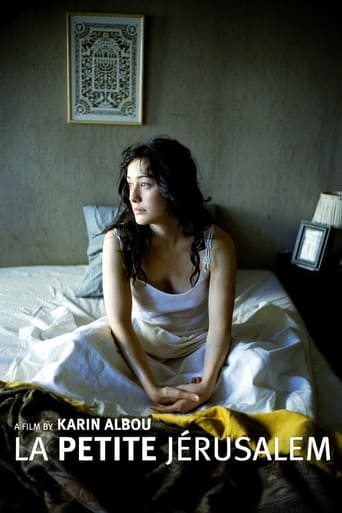

Laura is a pure young woman searching herself between her very orthodox religious background and Kantian philosophy. Then came the discovery of her own desire and sensuality. Though the man she loves cannot authorize himself to take distance with his own background, and hence Laura has to give up her romantic and high expectations, she goes on accepting her desires and taking distance with religion to find an allayed balance. On this path her sister helps her subtly (half conscious of it and above all, being non judgemental) and doing so finds her own way to live her sensuality within religion. A beautifully filmed initiatory path. Where even ugly Parisian suburbs are full of the light brought by Laura's purity. Where development of one member in a family brings development for everybody, because human beings live in network and there is no way your own inner changes have no impact on, at the very least, your relatives.
... View MoreYes, this movie offers a rare view into the lives of two Jewish sisters living with their family in France, the problem is there is not a whole lot of conviction behind the themes, the whole movie just kind of floats by on its own accord, never really making those connections it wishes to with the main characters. Laura, played by the sensual Fanny Valette does do a good job with her various inner struggles, and paints a respectable, and hardly viewed female archetype, in her character breaking with the traditions of family to seek out her own unique philosophies. Although potentially inspiring to the new generations of strict fundamentalist families, there is nothing depicted in this subtle religious rebellion that was not gone over ten fold with other countries feminist and/or religious fare. The resulting transformations of these two sisters seems rote in comparison, and despite the inclusion of several sex scenes, becomes predictable, tedious, and uninvolved all too quickly. Writer/Director Karin Albou does what she can for her part to retain some authenticity and command of her film but ultimately ends up loosing the viewer do to the underdeveloped script and flawed direction.
... View MoreLittle Jerusalem is an amazing film about a family of Orthodox Jews living in Paris.The best reason to see this film is Fanny Valette. I think Fanny Valette may be one of the greatest actresses ever. Seeing her in this film was like seeing Brad Pitt for the first time in 'Cool World'. Although I hated, hated, hated 'Cool World', the second Brad Pitt appeared I knew he was going to be a major, major star. I felt the same way about Russell Crowe in 'Romper Stomper' as well. All I can say is brush up on your English Ms. Valette, because Hollywood is going to be pounding down your door any second now.
... View More"La Petite Jerusalem (Little Jerusalem)" is a French intellectual exercise that manages to let feelings come through. Unlike Eric Rohmer's static arguments about mind vs. desire, as between two middle-aged guys in "Claire's Knee," here the clash of philosophies is demonstrated through a year in the intimate daily lives of two Orthodox Jewish sisters.While the intellectual discussions are very didactically presented through these two incredibly naive, but very intelligent, women, the very frank portrait of life in an intensely religious North African immigrant community, which debut writer/director Karin Albou comes from, is moving. The older sister, Mathilde (Elsa Zylberstein), represents the unquestioning rule follower of formal religion. She's married with four children, but has evidently never experienced nor knows anything about orgasms and she seems to have had no formal Jewish education as she just parrots lines about faith in all powerful Hashem and knows the rules of kashruth and going to the mikveh for the monthly cleansing ritual (which we see full frontally), but not much else. She is atypically isolated from the usually close women in her community who could provide her information and support. Hers seems a peasant Judaism.The rebellious younger sister, Laura (a very appealing Fanny Valette), is some sort of nonmatriculated philosophy student, but is also teaching and working as a cleaner. She follows to the letter first one than another secular philosophers' dictates, including celibacy, as rigidly as her brother-in-law head-of-the-household is apparently following the daily prayers, weekly Shabbat and seasonal rules of Judaism. Her intellectual rigidity leads her to reject the handsome Jewish medical student who comes to her for philosophical tutoring because he is too interested in the romantics and because her mother encourages the relationship with superstitious charms. The widowed mother's faith in magic is posited as a third way, along with the warm love of her children that is challenged but never wavers.Both sisters are faced with a heart breaking crisis of romantic passion in their lives that their philosophies don't seem to be able to reconcile. (Sorry, but it is beyond ludicrous that every woman in the household is mystified that the younger feels a certain stirring when a young handsome, dark-skinned Arab looks at her, and it's too bad that we learn so little about him except that he too is an intellectual who is torn about being a rebel within his family and culture.) But I saw that each just matured and learned that their views were immaturely narrow and ill-informed. They hadn't realized that for thousands of years folks have been reconciling human nature with intellect and finding a way to live with both, as gently pointed out by their mentors. Each learns to bend, while finding strength in their individual beliefs in unpredictable ways.The best part of the film is the realistic depiction of celebration of the Jewish holidays amidst multicultural life within the crowded les banlieues surrounding Paris (very comparable to neighborhoods in Brooklyn NYC) where we also saw romantic tensions in "Lila Says (Lila dit ça)" and "Games of Love and Chance (L'Esquive)." The film opens with tashlich, the symbolic discarding of sins for the new year, moves on to the celebration of the Torah in Simhat Torah and on to Purim. If this was an American family we'd see a seder and menorah lighting, but here Passover and Hanukkah are represented simply as special synagogue services. Here we also see the anti-Semitic violence that has threatened French Jews since the Intifada spilled over into Europe, which I haven't seen in films before. It is very ironic that this Tunisian Jewish family is as much refugees from North Africa as their Muslim Algerian neighbors who reject them.
... View More